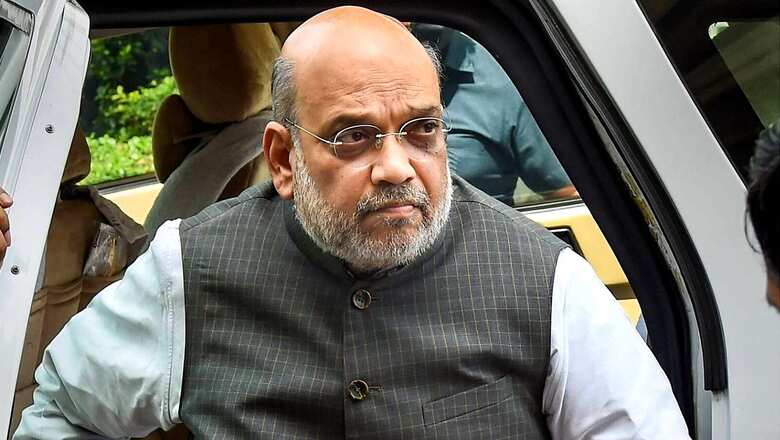
views
In a major step, the government said on Thursday that areas under the Armed Forces Special Powers Act (AFSPA) in northeastern states of Nagaland, Assam and Manipur will be reduced after decades. The government has clarified that the decision will considerably reduce areas under the AFSPA effective April 1, 2022, as the Act has not been completely removed.
Home Minister Amit Shah tweeted, “In a significant step, GoI under the decisive leadership of PM Shri @NarendraModi Ji has decided to reduce disturbed areas under Armed Forces Special Powers Act (AFSPA) in the states of Nagaland, Assam and Manipur after decades.”
Shah also said the reduction in areas under AFSPA is due to the improved security situation and “fast-tracked development” to end insurgency and bring peace in the region of northeast by the Modi government.
He thanked PM Modi for his “unwavering commitment”. “Our northeastern region, which was neglected for decades, is now witnessing a new era of peace, prosperity and unprecedented development. I congratulate the people of northeast on this momentous occasion,” Shah tweeted.
Under AFSPA, armed forces are defined as any military troops and “the air forces operating as land forces, and includes other armed forces of the Union so operating”.
A “disturbed area’ per AFSPA is any area in a state or Union Territory to which this Act extends where the governor of the administrator “is of the opinion that the whole or any part of such state or UT… is in such a disturbed or dangerous condition that the use of armed forces in aid of the civil power is necessary”.
The Act also says any commissioned officer, warrant officer, non-commissioned officer or any other person of equivalent rank in the armed forces in a disturbed area if he is of opinion that it is necessary so to do for the maintenance of public order, after giving such due warning as he may consider necessary, fire upon or otherwise use force, even to the causing of death, against any person who is acting in contravention of any law or order for the time being in force in the disturbed area prohibiting the assembly of five or more persons or the carrying of weapons or of things capable of being used as weapons or of fire-arms, ammunition or explosive substances.
“If he is of opinion that it is necessary so to do, destroy any arms dump, prepared or fortified position or shelter from which armed attacks are made or are likely to be made or are attempted to be made, or any structure used as a training camp for armed volunteers or utilised as a hide-out by armed gangs or absconders wanted for any offence,” Act says.
Further, officers stipulated under AFSPA can arrest without warrant any person in connection with the commission of a cognisable offence or even on the “reasonable suspicion… that he has committed or is about to commit a cognisable offence”. The Act allows such officers to “use such force as may be necessary to effect the arrest”.
The Union Home Ministry had told Parliament in January 2019 that AFSPA was operational throughout the states of Assam and Nagaland and in Manipur with the exception only of the municipal area of its capital city Imphal.
The Act was also said to be in force in three districts — Tirap, Changlang, Longding — of Arunachal Pradesh and the areas under the jurisdiction of eight police stations in the districts of Arunachal Pradesh bordering Assam.
The ministry had added that while the notification declaring “disturbed areas” in Manipur and Assam had been issued by the respective state governments, the government of Nagaland had “not supported extension of notification declaring Nagaland as ‘disturbed area’ under AFSPA, 1958″.
Read all the Latest News India and Breaking News here














Comments
0 comment